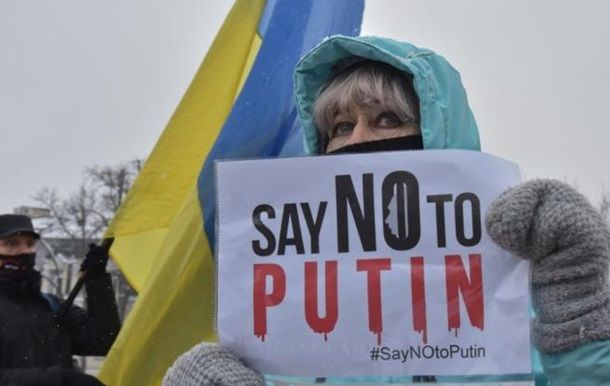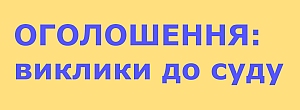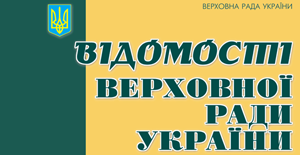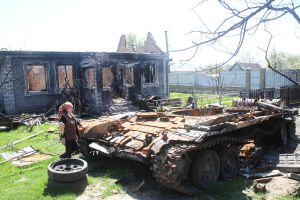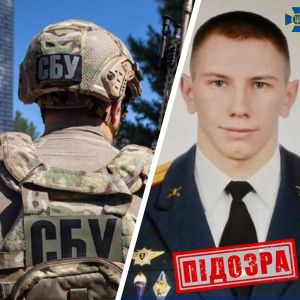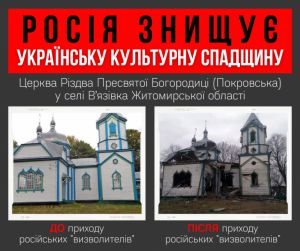Participants in the street action organized ahead of talks between the West and Russia with respect to the situation around Ukraine carried banners with the slogan “Say No to Putin”.
Demonstrators called leaders of democratic states to resist the Kremlin’s ultimatums and tell President Vladimir Putin of Russia the resounding “no” to his demands in order to “preserve the force of law rather than the law of force.”
“Putin pursues the goal of restoring the former Soviet Union and destroying the world alliances. He wants to plunge the world into chaos. Our task is to stop him and not to allow this to happen. We must say ‘no’ to Putin. He has launched the genocide of Crimean Tatars and unleashed a war along the whole perimeter of the former Soviet Union. Today we are witnessing the invasion of Kazakhstan by Russian troops. We saw wars against Georgia. And now Putin has started a war against Ukraine,” said the organizers of the Kyiv demonstration.
The same meetings were held in other towns of Ukraine as well as in the United States, Canada, Portugal, Australia and Great Britain.
Foreign Minister of Ukraine Dmytro Kuleba has declared that President Putin’s demands regarding legally-binding guarantees that the United States and Europe must give Russia “are illegal and threaten international peace and security.”
The Ukrainian minister underscored, “It’s time to call it what it really is. Putin calls for the United States, NATO and the European Union to recognize Russia’s spheres of influence which would include the neighboring independent countries. But the Cold War has long since ended and together with it the spheres of influence have ceased to exist.”
The following day, Switzerland became the venue of action where the Russian and American delegations met in Geneva, on January 10, for European security consultations. U.S. Deputy Secretary of State Wendy Sherman and Russian Deputy Foreign Minister Sergei Ryabkov took part in the security talks that lasted almost eight hours.
Most commentators believe that the American delegation said “no” to the majority of the Kremlin’s claims. After the talks, Wendy Sherman stressed that Washington would not allow anyone to close NATO’s doors for any country.
“The U.S. will not allow anyone to slam closed NATO's open-door policy," Sherman said and called this theme central to the NATO alliance. It was also stressed that there could be no talks about the withdrawal of NATO troops and weapons from those East European countries which became members of the Alliance since 1997.
According to Sherman, the United States is not going to depart from the principal of making no decisions on Ukraine without consultations with the Ukrainian leadership. As for aggression against Ukraine, the consequences for Russia will be even more “substantial, significant and really compelling” than those in 2014.
Sherman underscored that the withdrawal of Russian troops to the places of their deployment would signal the de-escalation of the situation along the border with Ukraine. Responding to Russia’s statement that the troops are stationed near the border with Ukraine for the purpose of conducting exercises, the Deputy State Secretary said, “One doesn’t normally send 100,000 troops to a border just to sort of exercise.”
According to the Deputy State Secretary, one of the preliminary ideas raised by the United States includes missile placement. “We also made clear that the United States is open to discussing the future of certain missile systems in Europe…
“We shared that we are also open to discussing ways we can set reciprocal limits on the size and scope of military exercises, and to improve transparency about those exercises, again on a reciprocal basis,” Sherman stressed.
For his part, Deputy Foreign Minister of Russia Sergei Ryabkov has declared that Russia has no intention to attack Ukraine. At the same time, Ryabkov has repeated once again that NATO has to refuse “to develop” the territories of those countries which have joined the Alliance since 1997.
Ryabkov has emphasized that Moscow wants the “iron-clad” guarantees that Ukraine and Georgia will not be admitted to NATO while “any attempts to blackmail and intimidate Russia are absolutely unacceptable and futile.”
However, in the view of Ryabkov, the atmosphere around the security talks is not entirely hopeless and that concrete decision will be made after the talks with NATO and the Organization for Security and Cooperation in Europe that are slated for January 12 and 13.
In this regard, State Secretary Antony Blinken believes that it will be difficult for the United States to make progress at the negotiations if Russia continues military escalation in Ukraine. For instance, he said in his statement published by the American Embassy in Kyiv immediately after the meeting of the American and Russian delegations in Geneva.
"Part of the Russian strategy is to post a list of absolutely unfulfilled requirements, and then to claim that the other side does not want to work together, and use it as a kind of excuse for aggressive actions,” Blinken said.
According to the State Secretary, the Russians “want to draw us in a debate about NATO, rather than focus on the matter at hand which is their aggression toward Ukraine.”
U.S. State Secretary Blinken stressed, “It’ll be very difficult to make actual progress if Russia continues to escalate its military buildup and its inflammatory rhetoric. We’ve been clear with Russia about what it will face if it continues on this path –massive consequences."
The newspaper Voice of Ukraine.


